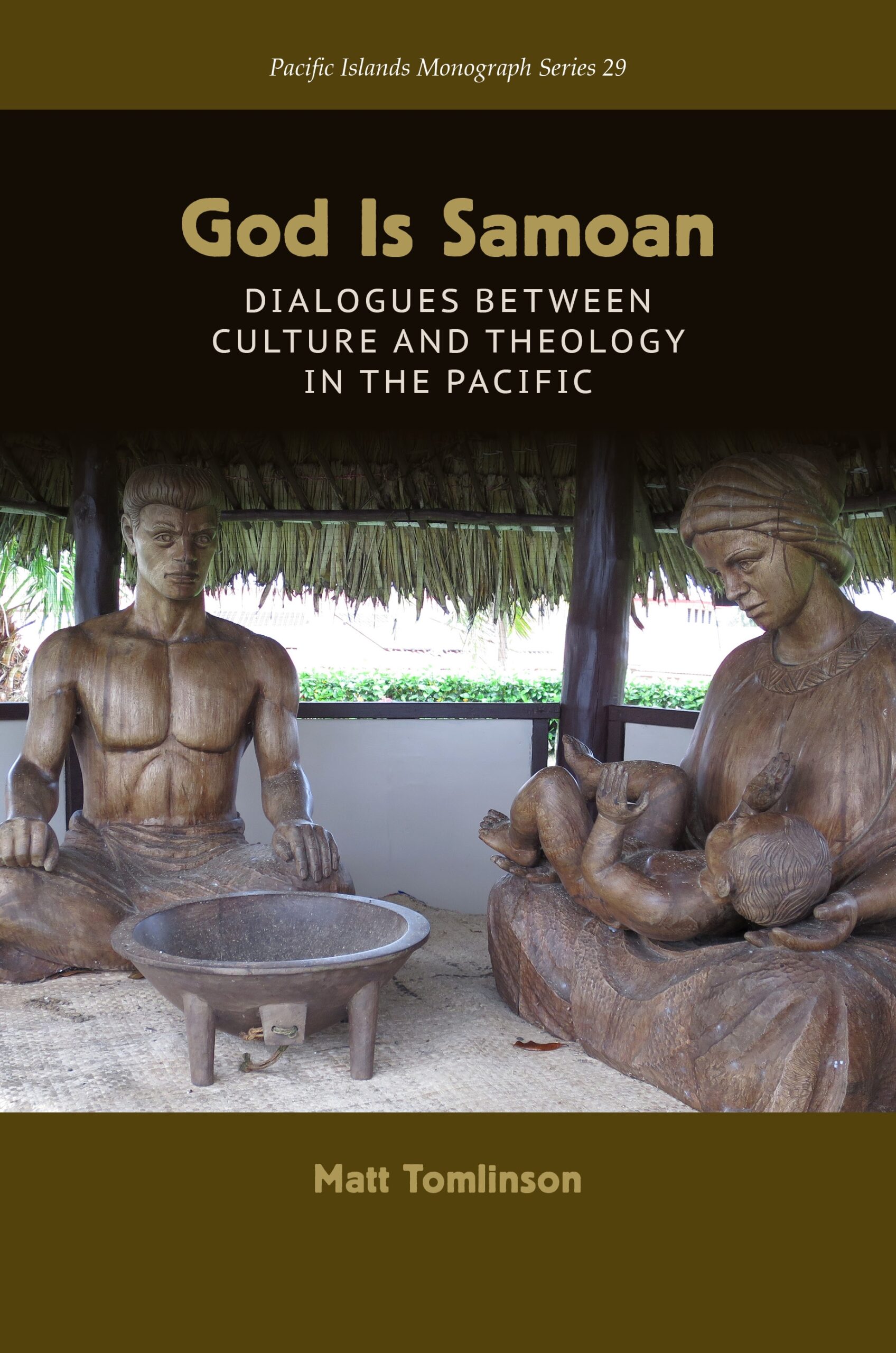God Is Samoan: Dialogues between Culture and Theology in the Pacific
- About the Book
-
Christian theologians in the Pacific Islands see culture as the grounds on which one understands God. In this pathbreaking book, Matt Tomlinson engages in an anthropological conversation with the work of “contextual theologians,” exploring how the combination of Pacific Islands culture and Christianity shapes theological dialogues. Employing both scholarly research and ethnographic fieldwork, the author addresses a range of topics: from radical criticisms of biblical stories as inappropriate for Pacific audiences to celebrations of traditional gods such as Tagaloa as inherently Christian figures. This book presents a symphony of voices—engaged, critical, prophetic—from the contemporary Pacific’s leading religious thinkers and suggests how their work articulates with broad social transformations in the region.
Each chapter in this book focuses on a distinct type of culturally driven theological dialogue. One type is between readers and texts, in which biblical scholars suggest new ways of reading, and even rewriting, the Bible so it becomes more meaningful in local terms. A second kind concerns the state of the church and society. For example, feminist theologians and those calling for “prophetic” action on social problems propose new conversations about how people in Oceania should navigate difficult times. A third kind of discussion revolves around identity, emphasizing what makes Oceania unique and culturally coherent. A fourth addresses the problems of climate change and environmental degradation to sacred lands by encouraging “eco-theological” awareness and interconnection. Finally, many contextual theologians engage with the work of other disciplines— prominently, anthropology—as they develop new discourse on God, people, and the future of Oceania.
Contextual theology allows people in Oceania to speak with God and fellow humans through the idiom of culture in a distinctly Pacific way. Tomlinson concludes, however, that the most fruitful topic of dialogue might not be culture, but rather the nature of dialogue itself. Written in an accessible, engaging style and presenting innovative findings, this book will interest students and scholars of anthropology, world religion, theology, globalization, and Pacific studies.
- About the Author(s)
-
Matt Tomlinson, Author
Matt Tomlinson is associate professor of anthropology in the Department of Social Anthropology at the University of Oslo and the College of Asia and the Pacific at the Australian National University.Tarcisius Kabutaulaka, Series Editor
- Reviews and Endorsements
-
This informative book offers an eloquent overview of a variety of contextual theologians’ themes and arguments. . . . The issues discussed in the book provide a template for a better understanding of many village, and not just Protestant, variants of Christian life, which are discussed by lay ‘contextual theologians’ (and their anthropologists) throughout the Pacific. They show, as the editor Tarcisius Kabutaulaka’s note states, that since the arrival of Christian missionaries in the mid-seventeenth century, Pacific Islanders have been actively engaged with their teachings, the Bible, and the relationship between Christianity and their lives.
—Borut Telban, Research Centre of the Slovenian Academy of Sciences and Arts, Ljubljana, Slovenia, The Asia Pacific Journal of Anthropology, 22:1 (2021)- Overall, this extremely informative book provides an excellent template for a better understanding of contextual theologians in the Pacific as well as their diligent efforts to establish the Pacific Way in theology. The range of stories and voices contained in the book is valuable especially to scholars outside theological colleges who have few opportunities to learn about Pacific contextual theology. . . . [It] has opened a rich field of future anthropological research on the production of theological knowledge and pedagogy of Word of God in the Pacific.
—Masami Tsujita, National University of Sāmoa, The Journal of Samoan Studies, 11: 1 (2021) - From the onset, Tomlinson’s strength as a writer and researcher becomes apparent: he elaborates theoretical terms with clear explanations and gripping quotations from historical sources and his own ethnographical fieldwork. He interweaves the necessary explanation of cultural techniques from Pacific islands, e.g., the emphasis and advocacy of dialogue in theology and the importance of storytelling (talanoa) in his research, and has gathered convincing examples how people from Oceania retell or write back at the bible in their own words and more importantly with their own history and cultural concepts. Tomlinson succeeds in sparking an engaging process between anthropology and theology, thereby adding to a deeper understanding of the history of the Pacific Islands from a social and cultural perspective.
—Moritz Pöllath PhD, Ludwig-Maximilians-University, Island Studies Journal, 16:1 (2021) - A refreshing book . . . Tomlinson seeks to bring Anthropology and Theology into a livelier interaction than hitherto known, and he realizes few have tried doing anything like this and that many anthropologists cannot see how it would come to anything, except to expose plain incommensurability of purpose. . . . [His] work will hopefully stand out as facilitating an interesting and badly needed new turn, one whereby mutual understanding also aids in practical problem-solving.
—Garry W. Trompf, University of Sydney, Oceania, 91:2 (2021)
- Supporting Resources
-





